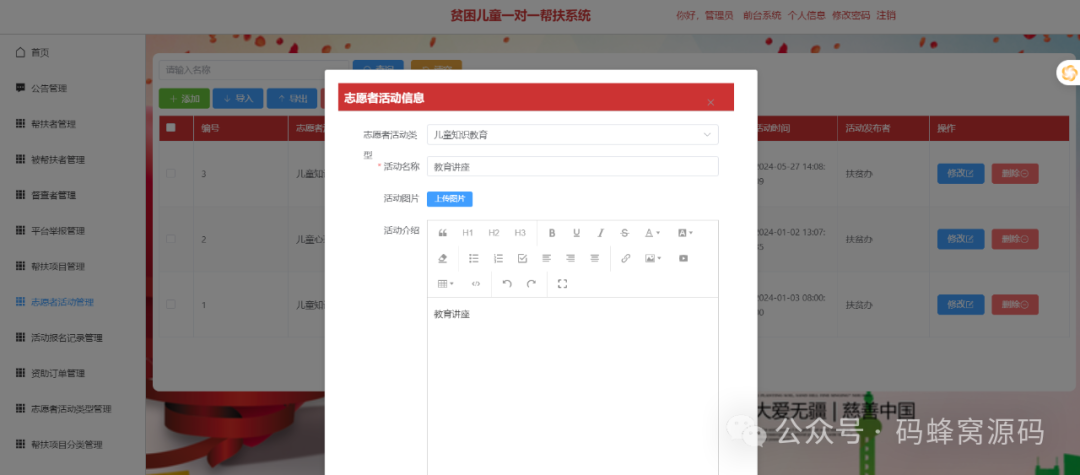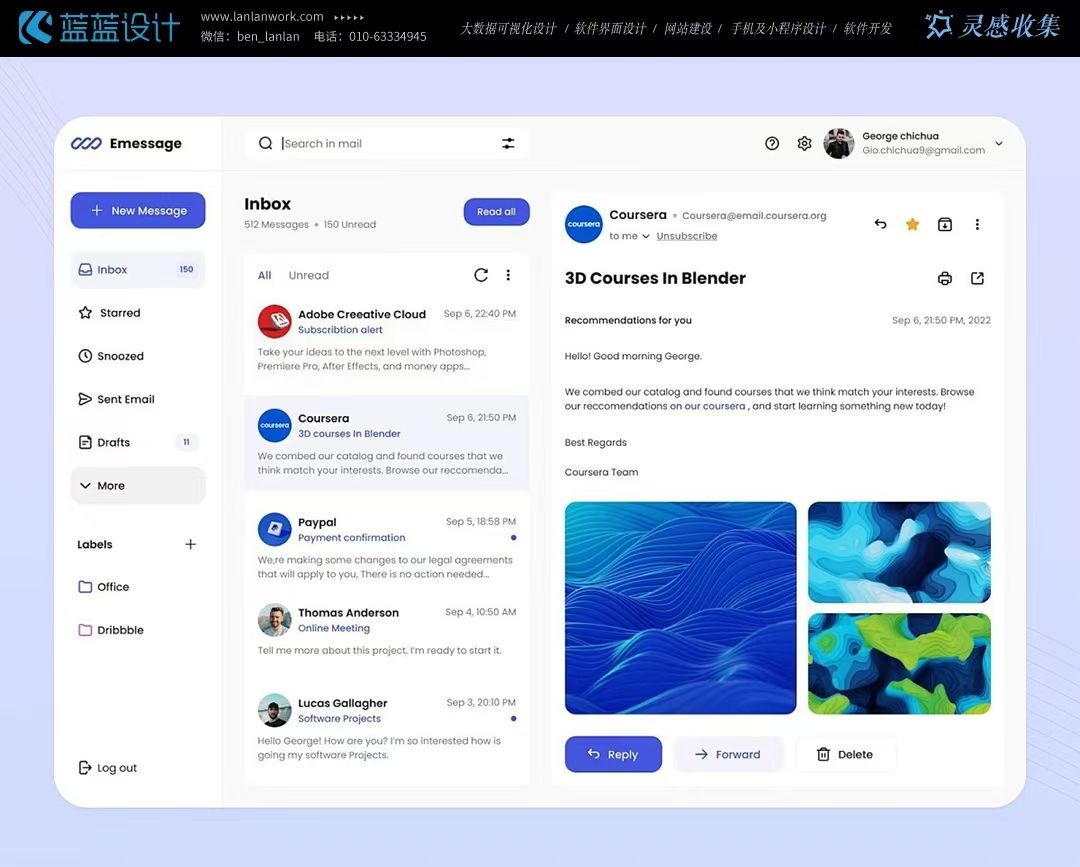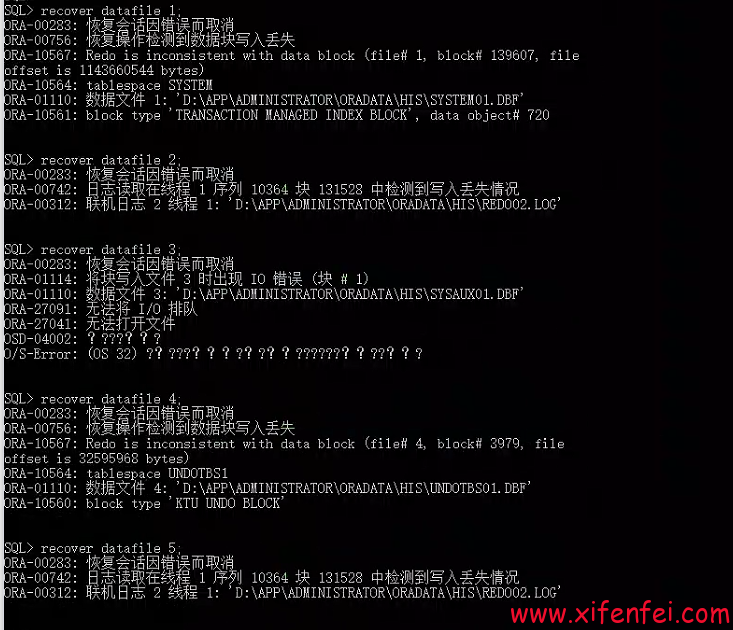一种关于登录的场景演示 - B 站登录和未登录
- 问题:B 站是如何认识我这个登录用户的?
- 问题:HTTP 是无状态,无连接的,怎么能够记住我?
一、引入 HTTP Cookie
定义
HTTP Cookie(也称为 Web Cookie、浏览器 Cookie 或简称 Cookie)是服务器发送到 用户浏览器并保存在浏览器上的一小块数据,它会在浏览器之后向同一服务器再次发 起请求时被携带并发送到服务器上。通常,它用于告知服务端两个请求是否来自同一 浏览器,如保持用户的登录状态、记录用户偏好等。
工作原理
- 当用户第一次访问网站时,服务器会在响应的 HTTP 头中设置 Set-Cookie 字段,用于发送 Cookie 到用户的浏览器。
- 浏览器在接收到 Cookie 后,会将其保存在本地(通常是按照域名进行存储)。
- 在之后的请求中,浏览器会自动在 HTTP 请求头中携带 Cookie 字段,将之 前保存的 Cookie 信息发送给服务器。
分类
- 会话 Cookie(Session Cookie):在浏览器关闭时失效。
- 持久 Cookie(Persistent Cookie):带有明确的过期日期或持续时间, 可以跨多个浏览器会话存在。
- 如果 cookie 是一个持久性的 cookie,那么它其实就是浏览器相关的,特 定目录下的一个文件。但直接查看这些文件可能会看到乱码或无法读取的内容, 因为 cookie 文件通常以二进制或 sqlite 格式存储。一般我们查看,直接在浏览 器对应的选项中直接查看即可。
安全性
- 由于 Cookie 是存储在客户端的,因此存在被篡改或窃取的风险。
用途
- 用户认证和会话管理(最重要)
- 跟踪用户行为
- 缓存用户偏好等
- 比如在 chrome 浏览器下,可以直接访问:chrome://settings/cookies
二、认识 cookie
- HTTP 存在一个报头选项:Set-Cookie, 可以用来进行给浏览器设置 Cookie 值。
- 在 HTTP 响应头中添加,客户端(如浏览器)获取并自行设置并保存 Cookie。
基本格式
C++
Set-Cookie: <name>=<value>
其中 <name> 是 Cookie 的名称,<value> 是 Cookie 的值。完整的 Set-Cookie 示例
C++
Set-Cookie: username=peter; expires=Thu, 18 Dec 2024 12:00:00
UTC; path=/; domain=.example.com; secure; HttpOnly时间格式必须遵守 RFC 1123 标准,具体格式样例:Tue, 01 Jan 2030 12:34:56 GMT 或者 UTC(推荐)。
关于时间解释:
- Tue: 星期二(星期几的缩写)
- , : 逗号分隔符
- 01: 日期(两位数表示)
- Jan: 一月(月份的缩写)
- 2030: 年份(四位数)
- 12:34:56: 时间(小时、分钟、秒)
- GMT: 格林威治标准时间(时区缩写)
GMT(格林威治标准时间)和 UTC(协调世界时)是两个不同的时间标准,但它们
在大多数情况下非常接近,常常被混淆。以下是两者的简单解释和区别:
1. GMT(格林威治标准时间):
○ GMT 是格林威治标准时间的缩写,它是以英国伦敦的格林威治区为基准
的世界时间标准。
○ GMT 不受夏令时或其他因素的影响,通常用于航海、航空、科学、天文
等领域。
○ GMT 的计算方式是基于地球的自转和公转。
2. UTC(协调世界时):
○ UTC 全称为“协调世界时”,是国际电信联盟(ITU)制定和维护的标准时间。
○ UTC 的计算方式是基于原子钟,而不是地球的自转,因此它比 GMT 更准
确。据称,世界上最精确的原子钟 50 亿年才会误差 1 秒。
○ UTC 是现在用的时间标准,多数全球性的网络和软件系统将其作为标准
时间。
GMT 和 UTC 的英文全称以及相关信息如下:
1. GMT(格林尼治标准时间)
○ 英文全称:Greenwich Mean Time
○ GMT 是指位于英国伦敦郊区的皇家格林尼治天文台的标准时间,因为本
初子午线被定义为通过那里的经线。理论上来说,格林尼治标准时间的正午是
指当太阳横穿格林尼治子午线时的时间。
○ 但值得注意的是,地球的自转是有些不规则的,且正在缓慢减速。因此,
格林尼治时间已经不再被作为标准时间使用。
2. UTC(协调世界时)
○ 英文全称:Coordinated Universal Time
○ UTC 是最主要的世界时间标准,其以原子时秒长为基础,在时刻上尽量
接近于格林尼治标准时间。
○ UTC 被广泛使用在计算机网络、航空航天等领域,因为它提供了非常准
确和可靠的时间参考。
总结来说,GMT 和 UTC 都曾是或现在是国际上重要的时间标准,但由于地球自转
的不规则性和原子钟的精确性,UTC 已经成为了全球性的标准时间,而 GMT 则更
多被用作历史和地理上的参考。区别:
- 计算方式:GMT 基于地球的自转和公转,而 UTC 基于原子钟。
- 准确度:由于 UTC 基于原子钟,它比基于地球自转的 GMT 更加精确。
在实际使用中,GMT 和 UTC 之间的差别通常很小,大多数情况下可以互换使用。但 在需要高精度时间计量的场合,如科学研究、网络通信等,UTC 是更为准确的选择。
关于其他可选属性的解释
- expires=<date>[要验证]:设置 Cookie 的过期日期/时间。如果未指定此属 性,则 Cookie 默认为会话 Cookie,即当浏览器关闭时过期。
- path=<some_path>[要验证]:限制 Cookie 发送到服务器的哪些路径。默认 为设置它的路径。
- domain=<domain_name>[了解即可]:指定哪些主机可以接受该 Cookie。默 认为设置它的主机。
- secure[了解即可]:仅当使用 HTTPS 协议时才发送 Cookie。这有助于防止 Cookie 在不安全的 HTTP 连接中被截获。
- HttpOnly[了解即可]:标记 Cookie 为 HttpOnly,意味着该 Cookie 不能被客户端脚本(如 JavaScript)访问。这有助于防止跨站脚本攻击(XSS)。
以下是对 Set-Cookie 头部字段的简洁介绍
| 属性 | 值 | 描述 |
|---|---|---|
| username | peter | 这是 Cookie 的名称和值,标识用户 名为"peter"。 |
| expires | Thu, 18 Dec 2024 12:00:00 UTC | 指定 Cookie 的过期时间。在这个例 子中,Cookie 将在 2024 年 12 月 18 日 12:00:00 UTC 后过期。 |
| path | / | 定义 Cookie 的作用范围。这里设置 为根路径/,意味着 Cookie 对.example.com 域名下的所有路径都可用。 |
| domain | .example.com | 指定哪些域名可以接收这个 Cookie。点前缀(.)表示包括所有子域名。 |
| secure | - | 指示 Cookie 只能通过 HTTPS 协议 发送,不能通过 HTTP 协议发送,增加安全性。 |
| HttpOnly | - | 阻止客户端脚本(如 JavaScript)访 问此 Cookie,有助于防止跨站脚本攻击(XSS)。 |
注意事项
- 每个 Cookie 属性都以分号(;)和空格( )分隔。
- 名称和值之间使用等号(=)分隔。
- 如果 Cookie 的名称或值包含特殊字符(如空格、分号、逗号等),则需要 进行 URL 编码。
Cookie 的生命周期
- 如果设置了 expires 属性,则 Cookie 将在指定的日期/时间后过期。
- 如果没有设置 expires 属性,则 Cookie 默认为会话 Cookie,即当浏览器 关闭时过期。
安全性考虑
- 使用 secure 标志可以确保 Cookie 仅在 HTTPS 连接上发送,从而提高安全性。
- 使用 HttpOnly 标志可以防止客户端脚本(如 JavaScript)访问 Cookie, 从而防止 XSS 攻击。
- 通过合理设置 Set-Cookie 的格式和属性,可以确保 Cookie 的安全性、有效 性和可访问性,从而满足 Web 应用程序的需求。
实验测试 cookie
- 测试 cookie 的代码:https://gitee.com/whb-helloworld/linux-plus- meal/tree/master/http-cookie-session/cookie
- chrome 浏览器查看 cookie 不方便,推荐使用 windows 自带浏览器
- 代码文件结构:
C++
Comm.hpp HttpProtocol.hpp InetAddr.hpp LockGuard.hpp Log.hpp
Main.cc Makefile Socket.hpp TcpServer.hpp Thread.hpp
ThreadPool.hpp测试 cookie 写入浏览器

测试自动提交
- 刷新浏览器,刚刚写入的 cookie 会自动被提交给服务器端

测试写入过期时间
- 这里要由自己形成 UTC 统一标准时间,下面是对应的 C++样例代码,以供参考:
C++
std::string GetMonthName(int month)
{
std::vector<std::string> months = {"Jan", "Feb", "Mar",
"Apr", "May", "Jun", "Jul", "Aug", "Sep", "Oct", "Nov", "Dec"};
return months[month];
}
std::string GetWeekDayName(int day)
{
std::vector<std::string> weekdays = {"Sun", "Mon", "Tue",
"Wed", "Thu", "Fri", "Sat"};
return weekdays[day];
}
std::string ExpireTimeUseRfc1123(int t) // 秒级别的未来 UTC 时间
{
time_t timeout = time(nullptr) + t;
// 这个地方有坑哦
struct tm *tm = gmtime(&timeout); // 这里不能用 localtime,因为 localtime 是默认带了时区的. gmtime 获取的就是 UTC 统一时间
char timebuffer[1024];
//时间格式如: expires=Thu, 18 Dec 2024 12:00:00 UTC
snprintf(timebuffer, sizeof(timebuffer),"%s, %02d %s %d %02d:%02d:%02d UTC",
GetWeekDayName(tm->tm_wday).c_str(),
tm->tm_mday,
GetMonthName(tm->tm_mon).c_str(),
tm->tm_year+1900,
tm->tm_hour,
tm->tm_min,
tm->tm_sec
);
return timebuffer;
}测试路径 path
提交到非/a/b 路径下:
- 比如:http://8.137.19.140:8888/a/x
- 比如:http://8.137.19.140:8888/
- 比如:http://8.137.19.140:8888/x/y

提交到/a/b 路径下:

附上部分核心代码
C++
class Http
{
private:
std::string GetMonthName(int month)
{
std::vector<std::string> months = {"Jan", "Feb", "Mar",
"Apr", "May", "Jun", "Jul", "Aug", "Sep", "Oct", "Nov", "Dec"};
return months[month];
}
std::string GetWeekDayName(int day)
{
std::vector<std::string> weekdays = {"Sun", "Mon", "Tue",
"Wed", "Thu", "Fri", "Sat"};
return weekdays[day];
}
std::string ExpireTimeUseRfc1123(int t) // 秒级别的未来 UTC 时间
{
time_t timeout = time(nullptr) + t;
struct tm *tm = gmtime(&timeout); // 这里不能用 localtime,
因为 localtime 是默认带了时区的. gmtime 获取的就是 UTC 统一时间
char timebuffer[1024];
//时间格式如: expires=Thu, 18 Dec 2024 12:00:00 UTC
snprintf(timebuffer, sizeof(timebuffer),
"%s, %02d %s %d %02d:%02d:%02d UTC",
GetWeekDayName(tm->tm_wday).c_str(),
tm->tm_mday,
GetMonthName(tm->tm_mon).c_str(),
tm->tm_year+1900,
tm->tm_hour,
tm->tm_min,
tm->tm_sec
);
return timebuffer;
}
public:
Http(uint16_t port)
{
_tsvr = std::make_unique<TcpServer>(port,std::bind(&Http::HandlerHttp, this, std::placeholders::_1));
_tsvr->Init();
}
std::string ProveCookieWrite() // 证明 cookie 能被写入浏览器
{
return "Set-Cookie: username=zhangsan;";
}
std::string ProveCookieTimeOut()
{
return "Set-Cookie: username=zhangsan; expires=" +ExpireTimeUseRfc1123(60) + ";"; // 让 cookie 1min 后过期
}
std::string ProvePath()
{
return "Set-Cookie: username=zhangsan; path=/a/b;";
}
std::string HandlerHttp(std::string request)
{
HttpRequest req;
req.Deserialize(request);
req.DebugHttp();
lg.LogMessage(Debug, "%s\n",
ExpireTimeUseRfc1123(60).c_str());
HttpResponse resp;
resp.SetCode(200);
resp.SetDesc("OK");
resp.AddHeader("Content-Type: text/html");
//resp.AddHeader(ProveCookieWrite()); //测试 cookie 被写入与自动提交
//resp.AddHeader(ProveCookieTimeOut()); //测试过期时间的写入
resp.AddHeader(ProvePath()); // 测试路径
resp.AddContent("<html><h1>helloworld</h1></html>");
return resp.Serialize();
}
void Run()
{
_tsvr->Start();
}
~Http()
{}
private:
std::unique_ptr<TcpServer> _tsvr;
};单独使用 Cookie,有什么问题?
- 写入的是测试数据,如果写入的是用户的私密数据呢?比如,用户名密码, 浏览痕迹等。
- 本质问题在于这些用户私密数据在浏览器(用户端)保存,非常容易被人盗取,更 重要的是,除了被盗取,还有就是用户私密数据也就泄漏了。
三、引入 HTTP Session
定义
HTTP Session 是服务器用来跟踪用户与服务器交互期间用户状态的机制。由于 HTTP 协议是无状态的(每个请求都是独立的),因此服务器需要通过 Session 来记住用户 的信息。
工作原理
当用户首次访问网站时,服务器会为用户创建一个唯一的 Session ID,并通过 Cookie 将其发送到客户端。
客户端在之后的请求中会携带这个 Session ID,服务器通过 Session ID 来识 别用户,从而获取用户的会话信息。
服务器通常会将 Session 信息存储在内存、数据库或缓存中。
安全性
与 Cookie 相似,由于 Session ID 是在客户端和服务器之间传递的,因此也存 在被窃取的风险。
但是一般虽然 Cookie 被盗取了,但是用户只泄漏了一个 Session ID,私密信息 暂时没有被泄露的风险
Session ID 便于服务端进行客户端有效性的管理,比如异地登录。
可以通过 HTTPS 和设置合适的 Cookie 属性(如 HttpOnly 和 Secure)来增强安全性。
超时和失效
Session 可以设置超时时间,当超过这个时间后,Session 会自动失效。
服务器也可以主动使 Session 失效,例如当用户登出时。
用途
用户认证和会话管理
存储用户的临时数据(如购物车内容)
实现分布式系统的会话共享(通过将会话数据存储在共享数据库或缓存中)
模拟 session 行为
测试 session 代码链接:https://gitee.com/whb-helloworld/linux-plus- meal/tree/master/http-cookie-session/session
代码文件结构:
C++
Comm.hpp HttpProtocol.hpp InetAddr.hpp LockGuard.hpp Log.hpp
Main.cc Makefile Session.hpp Socket.hpp TcpServer.hpp
Thread.hpp ThreadPool.hpp部分核心代码:
Session.hpp
C++
#pragma once
#include <iostream>
#include <string>
#include <memory>
#include <ctime>
#include <unistd.h>
#include <unordered_map>
// 用来进行测试说明
class Session
{
public:
Session(const std::string &username, const std::string &status)
:_username(username), _status(status)
{
_create_time = time(nullptr); // 获取时间戳就行了,后面实际需要,就转化就转换一下
}
~Session()
{}
public:
std::string _username;
std::string _status;
uint64_t _create_time;
//当然还可以再加任何其他信息,看你的需求
};
using session_ptr = std::shared_ptr<Session>;
class SessionManager
{
public:
SessionManager()
{
srand(time(nullptr) ^ getpid());
}
std::string AddSession(session_ptr s)
{
uint32_t randomid = rand() + time(nullptr); // 随机数+时间
戳,实际有形成 sessionid 的库,比如 boost uuid 库,或者其他第三方库等
std::string sessionid = std::to_string(randomid);
_sessions.insert(std::make_pair(sessionid, s));
return sessionid;
}
session_ptr GetSession(const std::string sessionid)
{
if(_sessions.find(sessionid) == _sessions.end()) return nullptr;
return _sessions[sessionid];
}
~SessionManager()
{}
private:
std::unordered_map<std::string, session_ptr> _sessions;
};HttpProtocol.hpp
C++
#pragma once
#include <iostream>
#include <string>
#include <sstream>
#include <vector>
#include <memory>
#include <ctime>
#include <functional>
#include "TcpServer.hpp"
#include "Session.hpp" // 引入 session
const std::string HttpSep = "\r\n";
// 可以配置的
const std::string homepage = "index.html";
const std::string wwwroot = "./wwwroot";
class HttpRequest
{
public:
HttpRequest() : _req_blank(HttpSep), _path(wwwroot)
{}
bool GetLine(std::string &str, std::string *line)
{
auto pos = str.find(HttpSep);
if (pos == std::string::npos)
return false;
*line = str.substr(0, pos); // \r\n
str.erase(0, pos + HttpSep.size());
return true;
}
void Parse()
{
// 解析出来 url
std::stringstream ss(_req_line);
ss >> _method >> _url >> _http_version;
// 查找 cookie
std::string prefix = "Cookie: ";
for (auto &line : _req_header)
{
std::string cookie;
if (strncmp(line.c_str(), prefix.c_str(), prefix.size()) == 0) // 找到了
{
cookie = line.substr(prefix.size()); // 截取"Cookie: "之后的就行了
_cookies.emplace_back(cookie);
break;
}
}
// 查找 sessionid
prefix = "sessionid=";
for (const auto &cookie : _cookies)
{
if (strncmp(cookie.c_str(), prefix.c_str(), prefix.size()) == 0)
{
_sessionid = cookie.substr(prefix.size()); // 截取"sessionid="之后的就行了
// std::cout << "_sessionid: " << _sessionid << std::endl;
}
}
}
std::string Url()
{
return _url;
}
std::string SessionId()
{
return _sessionid;
}
bool Deserialize(std::string &request)
{
std::string line;
bool ok = GetLine(request, &line);
if (!ok)
return false;
_req_line = line;
while (true)
{
bool ok = GetLine(request, &line);
if (ok && line.empty())
{
_req_content = request;
break;
}
else if (ok && !line.empty())
{
_req_header.push_back(line);
}
else
{
break;
}
}
return true;
}
void DebugHttp()
{
std::cout << "_req_line: " << _req_line << std::endl;
for (auto &line : _req_header)
{
std::cout << "---> " << line << std::endl;
}
}
~HttpRequest()
{}
private:
// http 报文自动
std::string _req_line; // method url http_version
std::vector<std::string> _req_header;
std::string _req_blank;
std::string _req_content;
// 解析之后的内容
std::string _method;
std::string _url; // / /dira/dirb/x.html/dira/dirb/XX?usrname=100&&password=1234 /dira/dirb
std::string _http_version;
std::string _path; // "./wwwroot"
std::string _suffix; // 请求资源的后缀
std::vector<std::string> _cookies; // 其实 cookie 可以有多个,因为 Set-Cookie 可以被写多条,测试,一条够了。
std::string _sessionid; // 请求携带的 sessionid,仅仅用来测试
};
const std::string BlankSep = " ";
const std::string LineSep = "\r\n";
class HttpResponse
{
public:
HttpResponse() : _http_version("HTTP/1.0"), _status_code(200),
_status_code_desc("OK"), _resp_blank(LineSep)
{}
void SetCode(int code)
{
_status_code = code;
}
void SetDesc(const std::string &desc)
{
_status_code_desc = desc;
}
void MakeStatusLine()
{
_status_line = _http_version + BlankSep +
std::to_string(_status_code) + BlankSep + _status_code_desc +LineSep;
}
void AddHeader(const std::string &header)
{
_resp_header.push_back(header + LineSep);
}
void AddContent(const std::string &content)
{
_resp_content = content;
}
std::string Serialize()
{
MakeStatusLine();
std::string response_str = _status_line;
for (auto &header : _resp_header)
{
response_str += header;
}
response_str += _resp_blank;
response_str += _resp_content;
return response_str;
}
~HttpResponse() {}
private:
std::string _status_line;
std::vector<std::string> _resp_header;
std::string _resp_blank;
std::string _resp_content; // body
// httpversion StatusCode StatusCodeDesc
std::string _http_version;
int _status_code;
std::string _status_code_desc;
};
class Http
{
private:
std::string GetMonthName(int month)
{
std::vector<std::string> months = {"Jan", "Feb", "Mar",
"Apr", "May", "Jun", "Jul", "Aug", "Sep", "Oct", "Nov", "Dec"};
return months[month];
}
std::string GetWeekDayName(int day)
{
std::vector<std::string> weekdays = {"Sun", "Mon", "Tue","Wed", "Thu", "Fri", "Sat"};
return weekdays[day];
}
std::string ExpireTimeUseRfc1123(int t) // 秒级别的未来 UTC 时间
{
time_t timeout = time(nullptr) + t;
struct tm *tm = gmtime(&timeout); // 这里不能用 localtime,
因为 localtime 是默认带了时区的. gmtime 获取的就是 UTC 统一时间char timebuffer[1024];
// 时间格式如: expires=Thu, 18 Dec 2024 12:00:00 UTC
snprintf(timebuffer, sizeof(timebuffer),"%s, %02d %s %d %02d:%02d:%02d UTC",
GetWeekDayName(tm->tm_wday).c_str(),
tm->tm_mday,
GetMonthName(tm->tm_mon).c_str(),
tm->tm_year + 1900,
tm->tm_hour,
tm->tm_min,
tm->tm_sec);
return timebuffer;
}
public:
Http(uint16_t port)
{
_tsvr = std::make_unique<TcpServer>(port,
std::bind(&Http::HandlerHttp, this, std::placeholders::_1));
_tsvr->Init();
_session_manager = std::make_unique<SessionManager>();
}
std::string ProveCookieWrite() // 证明 cookie 能被写入浏览器
{
return "Set-Cookie: username=zhangsan;";
}
std::string ProveCookieTimeOut()
{
return "Set-Cookie: username=zhangsan; expires=" +
ExpireTimeUseRfc1123(60) + ";"; // 让 cookie 1min 后过期
}
std::string ProvePath()
{
return "Set-Cookie: username=zhangsan; path=/a/b;";
}
std::string ProveSession(const std::string &session_id)
{
return "Set-Cookie: sessionid=" + session_id + ";";
}
std::string HandlerHttp(std::string request)
{
HttpRequest req;
HttpResponse resp;
req.Deserialize(request);
req.Parse();
// req.DebugHttp();
// std::cout << req.Url() << std::endl;
// 下面的代码就用来测试,如果你想更优雅,可以回调出去处理
static int number = 0;
if (req.Url() == "/login") // 用/login path 向指定浏览器写入sessionid,并在服务器维护对应的 session 对象
{
std::string sessionid = req.SessionId();
if (sessionid.empty()) // 说明历史没有登陆过
{
std::string user = "user-" +
std::to_string(number++);
session_ptr s = std::make_shared<Session>(user, "logined");
std::string sessionid = _session_manager->AddSession(s);
lg.LogMessage(Debug, "%s 被添加, sessionid是: %s\n", user.c_str(),
sessionid.c_str());
resp.AddHeader(ProveSession(sessionid));
}
}
else
{
// 当浏览器在本站点任何路径中活跃,都会自动提交 sessionid, 我们就能知道谁活跃了.
std::string sessionid = req.SessionId();
if (!sessionid.empty())
{
session_ptr s = _session_manager->GetSession(sessionid);
// 这个地方有坑,一定要判断服务器端 session 对象是否存在,因为可能测试的时候
// 浏览器还有历史 sessionid,但是服务器重启之后,session 对象没有了.
if(s != nullptr)
lg.LogMessage(Debug, "%s 正在活跃.\n", s->_username.c_str());
else
lg.LogMessage(Debug, "cookie : %s 已经过期, 需要清理\n", sessionid.c_str());
}
}
resp.SetCode(200);
resp.SetDesc("OK");
resp.AddHeader("Content-Type: text/html");
// resp.AddHeader(ProveCookieWrite()); //测试 cookie 被写入与自动提交
// resp.AddHeader(ProveCookieTimeOut()); //测试过期时间的写入
// resp.AddHeader(ProvePath()); // 测试路径
resp.AddContent("<html><h1>helloworld</h1></html>");
return resp.Serialize();
}
void Run()
{
_tsvr->Start();
}
~Http()
{}
private:
std::unique_ptr<TcpServer> _tsvr;
std::unique_ptr<SessionManager> _session_manager;
};实验测试 session
- 准备两个浏览器: Google Chrome 和 Microsoft Edge(windows 自带的)
- 删除浏览器中指定的服务器上的所有的 cookie
- 如果历史上没有做过测试,就不删了。
- chrome 的 cookie 有些特殊,实验不出来,尝试打印 chrome 浏览器发过来 的 http 请求,观察 cookie 部分,你就能知道为什么要删除历史 cookie。
2. 访问/login, 模拟登录
3. 两个服务器访问任意的站点资源
四、总结
HTTP Cookie 和 Session 都是用于在 Web 应用中跟踪用户状态的机制。Cookie 是存 储在客户端的,而 Session 是存储在服务器端的。它们各有优缺点,通常在实际应用 中会结合使用,以达到最佳的用户体验和安全性。


附录:
- favicon.ico 是一个网站图标,通常显示在浏览器的标签页上、地址栏旁边或收 藏夹中。这个图标的文件名 favicon 是 "favorite icon" 的缩写,而 .ico 是图标的文件格式。
- 浏览器在发起请求的时候,也会为了获取图标而专门构建 http 请求,我们不管它。



















